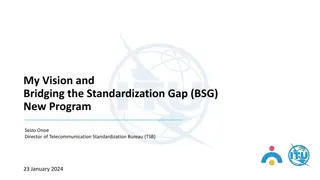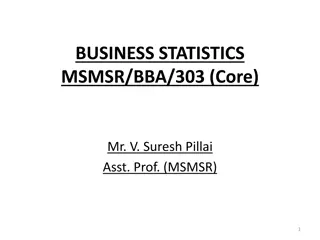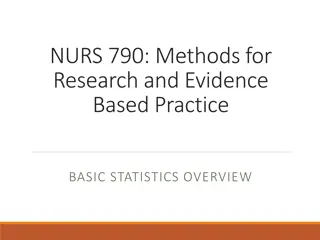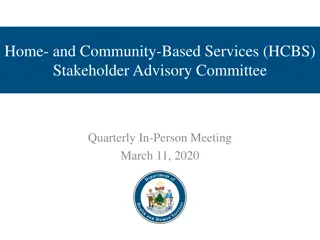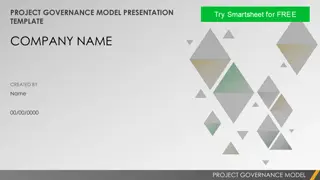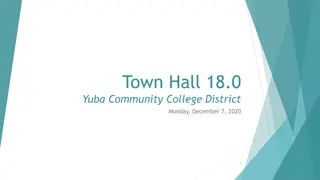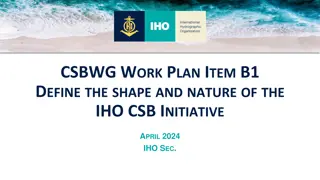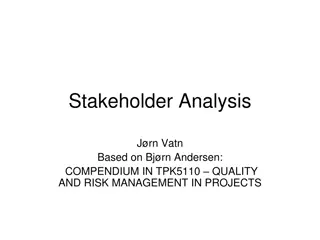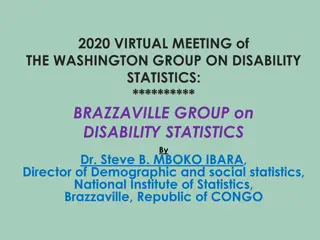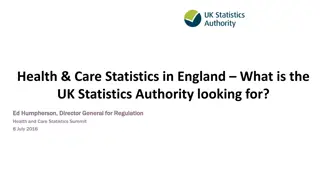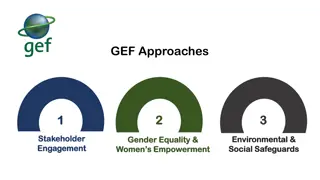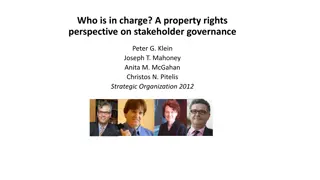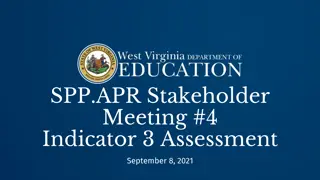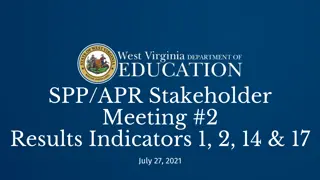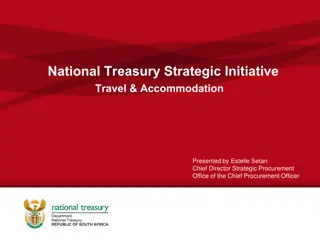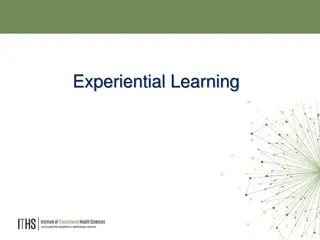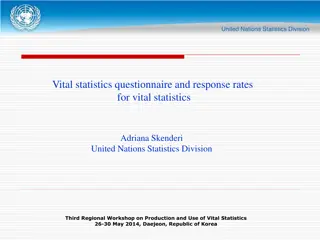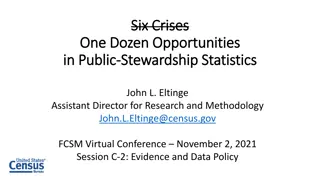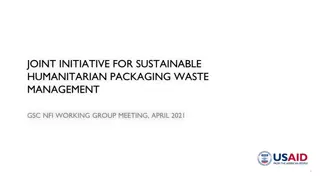MARI Initiative Updates and Stakeholder Statistics Presented in BSG Meeting
In the BSG Meeting held in Brussels, Belgium on March 5, 2018, updates on the Manually Activated Reserves Initiative (MARI) were discussed. The meeting covered membership updates, involvement of Transmission System Operators (TSOs), submission timelines for mFRR and aFRR platforms, and feedback from consultations. General statistics on stakeholders' market roles and mFRR capacity categories were also shared, highlighting key roles in various countries. Detailed information and insights were provided through multiple slides presented during the meeting.
Uploaded on Sep 30, 2024 | 2 Views
Download Presentation

Please find below an Image/Link to download the presentation.
The content on the website is provided AS IS for your information and personal use only. It may not be sold, licensed, or shared on other websites without obtaining consent from the author.If you encounter any issues during the download, it is possible that the publisher has removed the file from their server.
You are allowed to download the files provided on this website for personal or commercial use, subject to the condition that they are used lawfully. All files are the property of their respective owners.
The content on the website is provided AS IS for your information and personal use only. It may not be sold, licensed, or shared on other websites without obtaining consent from the author.
E N D
Presentation Transcript
MARI MARI Manually Activated Reserves Initiative BSG Meeting BSG Meeting 5 March 2018 Brussels, Belgium
MARI MARI Members Update 2
MARI Involved Parties TSOs only MEMBERS (25 TSOs) TSOs in Process of Becoming Members AUSTRIA LATVIA HUNGARY BELGIUM LITHUANIA CROATIA CZECH REPUBLIC NORWAY DENMARK NETHERLANDS OBSERVERS (3 TSOs + ENTSO-E) ESTONIA PORTUGAL BULGARIA FINLAND POLAND SERBIA FRANCE ROMANIA SLOVAKIA SLOVENIA ENTSO-E SPAIN GERMANY SWEDEN SWITZERLAND GREECE UNITED KINGDOM ITALY 3
MARI mFRR and aFRR Platform Submission Timeline 4
MARI PICASSO and MARI Timeline for IFs Submission Implementation Framework Drafting Finalization on the Implementation Framework IF Provision to NRAs TSOs TSOs TSOs Public Consultation 2 Months Stakeholders Apr Jul Mar May Jun Aug Sep Oct Nov Dec Stakeholder Workshops Stakeholder Workshop 5
MARI Feedback from the Consultation 6
MARI General Statistics I 12 12 12 There were released consultation questionnaire including 45 questions, across 65 stakeholders from 17 countries. The market roles of stakeholders were identified by themselves to 7 categories. Majority of stakeholders is presented in Germany and Austria, and major role is the generation. 10 8 6 5 6 4 4 3 3 3 4 2 2 2 2 1 1 1 1 1 2 0 Switzerland Generation Sweden Portfolio Manager Spain Market Operator Austria Czech Republic EU France Great Britain Lithuania Norway Slovenia Sweden Belgium Denmark Finland Germany Italy Netherland Slovakia Spain Switzerland Slovenia Supply Slovakia Consultancy Norway Association Netherland Aggregator Lithuania Aggregator Association Italy Market Operator Great Britain Consultancy Germany France Supply Finland EU Denmark Portfolio Manager Czech Republic Belgium Generation Austria 0 2 4 6 8 10 12 14 0 5 10 15 20 25 30 35 40 7
MARI General Statistics II 30 26 There were identified 3 size categories by mFRR capacity available: small (less than 5 MW) medium (5-100 MW) large (over 100 MW) 25 stakeholders did not provide information 25 25 20 15 12 10 5 2 40% 38% 18% 3% 0 Switzerland Small Medium Large Not Answered Small Sweden Spain Medium Slovenia Slovakia 2% Large Norway Generation 15% Netherlands Not Answered Lithuania Portfolio Manager Italy Supply 5% Great Britain Germany 3% Consultancy France Finland Aggregator 8% 58% EU Denmark Association Czech Republic 9% Market Operator Belgium Austria 0 2 4 6 8 10 12 14 8
MARI Feedback from the Consultation PRODUCT and PROCESS 9
MARI Feedback Product and Process Main Input A FAT of 12,5 (or lower) would reduce the volume BSPs could offer from thermal units (-10 to - 40%), which can have impact on liquidity. FAT Current Consideration in the Project The Project currently favours to set the FAT as long as possible most likely at 12,5 minutes since as we consolidate the reserves through Europe to get benefits of the cooperation. This sets new requirements on the processing time linked to this cooperation: thus the platform will probably need 2.5 for this purpose 10
MARI Feedback Product and Process Main Input Resting Time Opportunity for the BSPs to have a limitation on number of QHs activated and the use of a resting time is considered to be useful for increasing participation from certain technologies (e.g. Storage, hydro and less flexible plants); Sequence DA>SA vs. SA>DA The feedback was not conclusive, since different preference on questions connected with the sequence were provided by the same stakeholders It seems that BSPs prefer DA before SA based on the argument that most of the energy is delivered in the main QH. BSP GCT BSP GCT should be defined on a cross project level 11
MARI Feedback Product and Process Main Input A large portion of the BSPs welcome the feature of linked bids as long as there is not a massive impact on the complexity. BSPs asked for the possibility for the to link bids between two QHs for: 1. start-up reasons (BPS starts-up in QH 0 hence price of the bid in QH 1 is lower) 2. power plant technical reasons (need for a minimum delivery period >5 ) BSPs requested more detailed information and transparency on how linking between bids is performed. Linking Bids Current Consideration in the Project The feature of the linking bids shall be implemented. For the start up costs possibility of technical linking will be further evaluated. Optimization for technical reason will most likely not be possible mFRR platform will most likely not allow linking over a number of QHs 12
MARI Feedback Product and Process Main Input For granularity of bids a good compromise between liquidity and efficiency/costs for implementation, would be 1 MW. BSPs foresee to use indivisible bids. In a portfolio based approach there is no need for indivisible bids but if needed, the maximum volume of indivisible bid should not be too high in order to incentivize flexibility for BSPs. Indivisibility of Bids BSPs request the possibility to declare a minimum activation for technical reasons in divisible bids Current Consideration in the Project The TSOs favour no limit on indivisible bids in order not exclude any current participants from the mFRR market 13
MARI Feedback Product and Process Main Input BSPs asked for no limitations on the volume activated by a TSO as long as there is capacity and ATC available. Proposal would be to develop the guaranteed volume + excess volume approach. Activation Volume 14
MARI Feedback from the Consultation SPECIFICATION of the ALGORITHM OPTIMAZATION FUNCTION 15
MARI Feedback Specification of the AOF - Main Input Publication of inputs (TSO Demand, price, ATC per border) and outputs (submitted and activated bids and marginal prices, upward and downward volumes per bidding zone and used cross-zonal capacity) are important Algorithm Inputs and Outputs Social Welfare Maximisation Social welfare maximization as objective and requirement for traceable and transparent algorithm results Scheduled counter- activations Part of the responses favour scheduled counteractivations inter-alia because increases the probability for BSPs to be activation. Other BSPs stake that TSO should use flexibility when they need it for system security, not for market issues. 16
MARI Feedback Specification of the AOF - Main Input The BSPs are in general against unforeseeably accepted divisible bids however could accept unforeseeable rejected divisible bids for the goal of minimization of the balancing cost. Unforeseeable accepted and rejected divisible bids Two optimal solutions with different marginal prices If a set of optimal solutions exists, which lead however to different marginal prices: preference - smaller marginal price - because of transparency The majority of BSPs agrees with the minimization of the cross-border flows. 17
MARI Feedback from the Consultation SETTLEMENT 18
MARI Feedback Settlement Main Input Request for further analysis on the effects of XBMP on imbalance pricing. Cross-border marginal pricing Stakeholders do not see additional negative impacts of XBMP. Stakeholders are in favor of block settlement. However, it has been argued, that the relation to TSO-BRP (imbalance adjustment) remains unclear. Volume Settlement Stakeholders prefer pricing category A (Main argument: most transparent). Stakeholders prefer pricing option A3 (Main argument: most transparent option). ie. Same settlement price for direct and schedule activations. (Max. price of activated SA- and DA-bids of the main QH) Majority of respondents are of the opinion that the greatest incentive to submit bids capable of direct activation can be achieved with pricing options A3 . Pricing Settlement 19
MARI Feedback Settlement Main Input About 50% of respondents consider the issue of Rejected Scheduled bids/demand * problematic, 50% do not. No reasons were provided. Some of the stakeholders might have confused this issue with Unforeseeably Rejected Divisible Bids (URB) ) Rejected scheduled bids/demand Price Wide consensus on how to treat price indeterminacies. Option1: Mid point of marginal prices . (Main reason: consistency with current practice in DA- market and foreseen practice in TERRE). indeterminacie s 20
MARI Feedback from the Consultation CONGESTION MANAGEMENT HARMONIZATION 21
MARI Feedback Congestion Management - Main Input Overall, many inputs supported earlier proposal to SC as do not support measure mFRR zones, do not support measure to form a cluster, support measure Critical Network Elements in the future. Limiting ATC - pushing internal congestions to borders by limiting ATC should not be allowed Congestion Management 22
MARI Feedback Harmonization - Main Input Harmonization of prequalification requirements: Harmonization of accepted shape Harmonization of mFRR GCT for BSPs Harmonization of TSO-BSP settlement schemes Harmonization of penalties scheme Harmonization of back-up requirements (including energy availability requirements) Harmonization Priorities No specific feedback on preferences between before and after go-live harmonization 23
MARI Thank you for your attention! For further details please contact: Steering Committee Chairman Martin H gh M ller mhm@energinet.dk Technical Working Group Conveners Aurelien Peyrac aurelien.peyrac@rte-france.com Markus Speckmann Markus.speckmann@amprion.net 24



